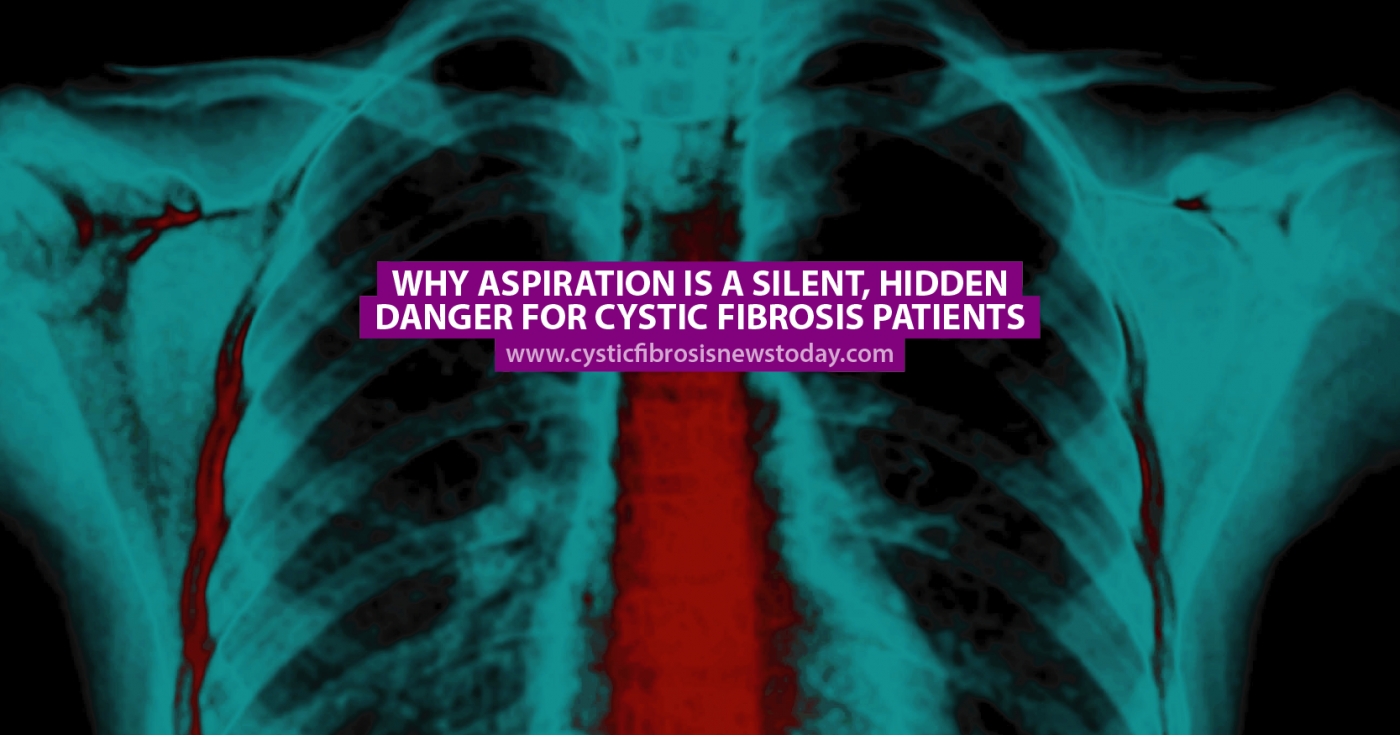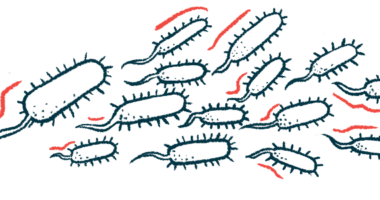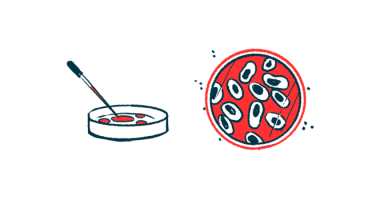Why Aspiration Is a Silent, Hidden Danger for Cystic Fibrosis Patients

Dr. Gwen A. Huitt is an infectious disease doctor at National Jewish Health with a special interest in mycobacteria, bronchiectasis, and cystic fibrosis. Here, she talks to us about the hidden dangers of a major medical issue she feels doesn’t receive the attention it needs in the CF community — aspiration.
Q: What is aspiration? What is silent aspiration?
A: Aspiration is defined as any liquid, substance, or foreign body that gains access (below the vocal cords) to the airways. Many times when we have an overt aspiration, a cough is triggered. Think, “something went down the wrong pipe.” This may occur when folks drink fluids too quickly, toss their head back to take pills, etc. A small amount of liquid trickles down the windpipe, irritating it and causing a cough. Additionally, overt aspiration may occur in some folks with neurologic disorders that impair the ability to swallow appropriately (think stroke, Parkinson’s disease, etc.).
Silent aspiration may also occur in many neuromuscular disorders as well in “normal” hosts. This is where my patient population lives for the most part. There are two distinct situations that may occur. The first would be that when we take a drink, some small amounts of liquid “pools” in a recess around the vocal cords and then little amounts can trickle over the vocal cords down into the airway, but it does not trigger a cough or any sensation that something has just gained access to the airway. The second scenario is when we silently or overtly reflux up liquids from the stomach or esophagus and they reach high enough in the esophagus that they then trickle into the airway.
Q: What contributes most to aspiration?
A: For our patient population, we believe that overdistending the stomach with too much liquid, bending forward or lying too flat on your back, stomach, or on your right side contributes to most of our silent reflux episodes.
Q: What are the dangers of aspiration for a CF patient?
A: The dangers of aspiration for CF or non-CF patients are that you are sending not only germs such as pseudomonas or non-tuberculosis mycobacteria (NTM) into the airway that contribute to infection, but also that digestive enzymes and acids cause significant inflammation in the airways. This situation worsens inflammation and infection in the vulnerable airway.
MORE: Three travel considerations if you have a lung disease
Q: What are telltale signs of aspiration damage in the lungs?
A: We know that aspiration can lead to bronchiectasis. Additionally, by looking at microbiology of the sputum, we may find many organisms that are predominantly only supposed to be found in the digestive tract. When we see certain organisms such as citrobacter or E. coli we know for sure that these organisms were translocated from the digestive tract to the airway via aspiration. In all likelihood, other organisms such as pseudomonas, NTM, and Klebsiella are also primarily acquired in the airway via this mechanism. Much more research needs to be done in this area though.
Q: What is something about aspiration you think people would be surprised to learn?
A: That so much of aspiration is silent and we currently don’t have any good test to assess for intermittent reflux that may lead to aspiration. Also, there is no medication that stops reflux (which then leads to aspiration). Medications such as PPI (i.e., Nexium) or H2 blocker (i.e., Zantac) medications suppress acid production, which certainly can help with heartburn or cough, but they do not stop the physical action of reflux.
Q: Should reflux medication be a last resort or is it enough of a danger that it should be used as soon as a patient begins exhibiting reflux/aspiration symptoms?
A: As I said earlier, we currently have no medication to stop the action of reflux. In many ways, taking these medications may actually make reflux worse because you don’t feel heartburn symptoms but most certainly are still refluxing. Also, part of what PPIs and H2 blockers do is lower acid. Part of the action of acid in digestive juices is to kill some proportion of germs that we swallow. If you are still refluxing (while taking PPIs) and you then aspirate some of this digestive “soup,” you are actually aspirating more germs per aliquot of gastric contents. [But] you should definitely take a medication to help with heartburn symptoms or if you have been seen by a [gastro doctor] and they have diagnosed ulcer disease or Barrett’s esophagus.
Q: Do you believe aspiration is taken as seriously in the CF health care setting as it should be?
A: No, I do not think that aspiration is taken seriously at all in the CF community. Nor is it taken as seriously in the non-CF world.
MORE: Virtual reality headset used in hospital for cystic fibrosis “distraction therapy”
Cystic Fibrosis News Today is strictly a news and information website about the disease. It does not provide medical advice, diagnosis or treatment. This content is not intended to be a substitute for professional medical advice, diagnosis, or treatment. Always seek the advice of your physician or another qualified health provider with any questions you may have regarding a medical condition. Never disregard professional medical advice or delay in seeking it because of something you have read on this website.







